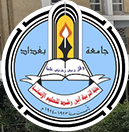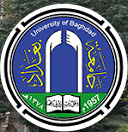Abstract
The years after World War II are considered the most difficult in the history of European countries and the world, due to the political, economic and social crises that occurred during them. Since the United States of America was the most powerful country economically, it adopted the mission of famine relief for political motives that precede humanity. The Truman administration chose to Former President Herbert Hoover to take over that mission, this reason, the study attempts to shed light on the role played by Herbert Hoover in addressing the post-World War II food crisis through his chairmanship of the Famine Emergency Committee and his trip to Western European countries and the world in 1946 to determine the extent of food needs and explain ways to provide them, in addition to his economic mission to Germany. Western lands in 1947, and the solutions he proposed for their economic situation. The study reached several conclusions, the most important of which is that the role that Hoover played in the field of relief following the years of World War II was not new to him, but what distinguished him this time was that it coincided with the beginning of the permanent and eternal conflict between the socialist and capitalist camps, which naturally made his mission part of It is not part of this conflict. In addition, he was among the few American politicians and even Allied politicians who realistically looked at the extent of Germany's economic problems and their resulting consequences, and even tried, through his position, to find appropriate solutions to them.
Article Type
Article
First Page
250
Last Page
268
Publication Date
6-15-2024
Creative Commons License

This work is licensed under a Creative Commons Attribution 4.0 International License.
Recommended Citation
Saleh, Rawa Haider and Ahmed, Majed Khaled
(2024)
"The Role of Herbert Hoover in Addressing the Food Crisis After World War II and His Mission in West Germany 1946-1947,"
Alustath Journal for Human and Social Sciences: Vol. 63:
Iss.
2, Article 18.
DOI: 10.36473/4x2mp661
Available at:
https://alustath.researchcommons.org/journal/vol63/iss2/18










